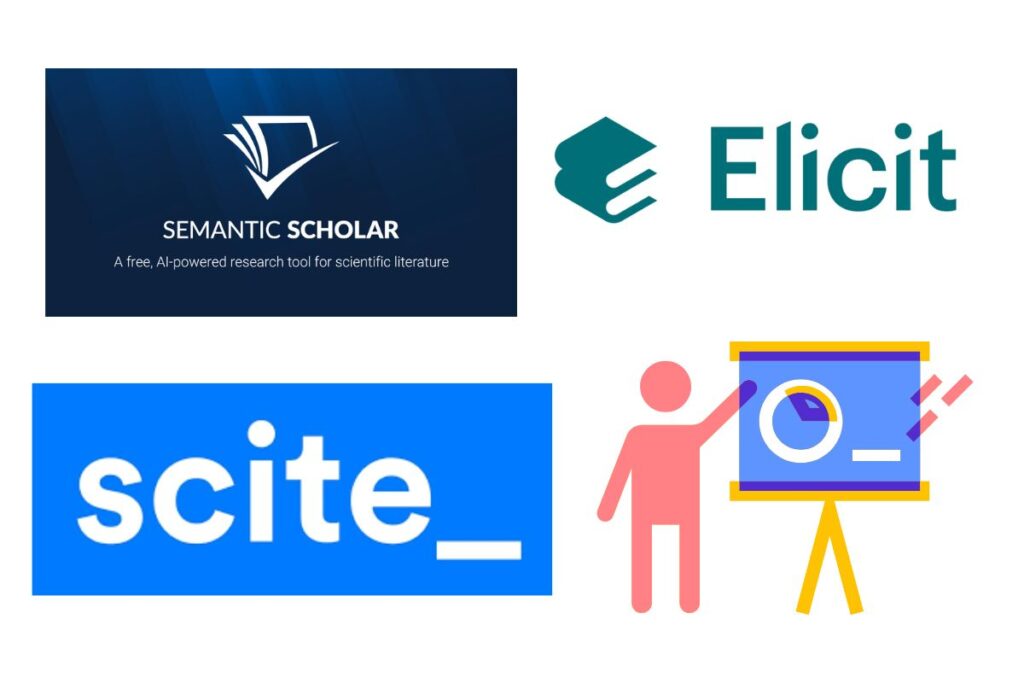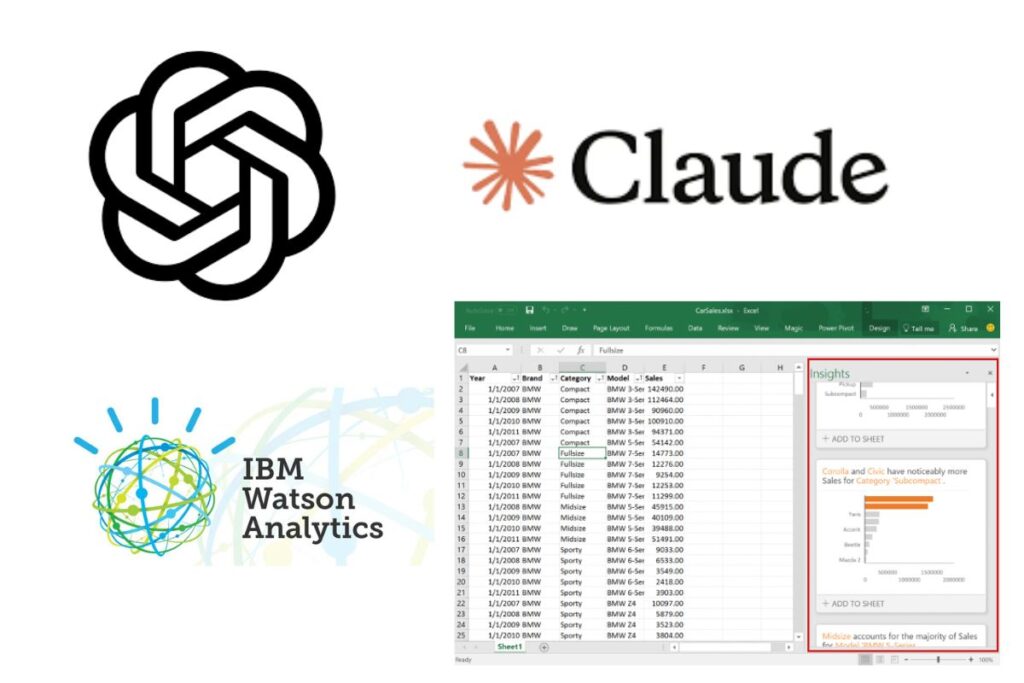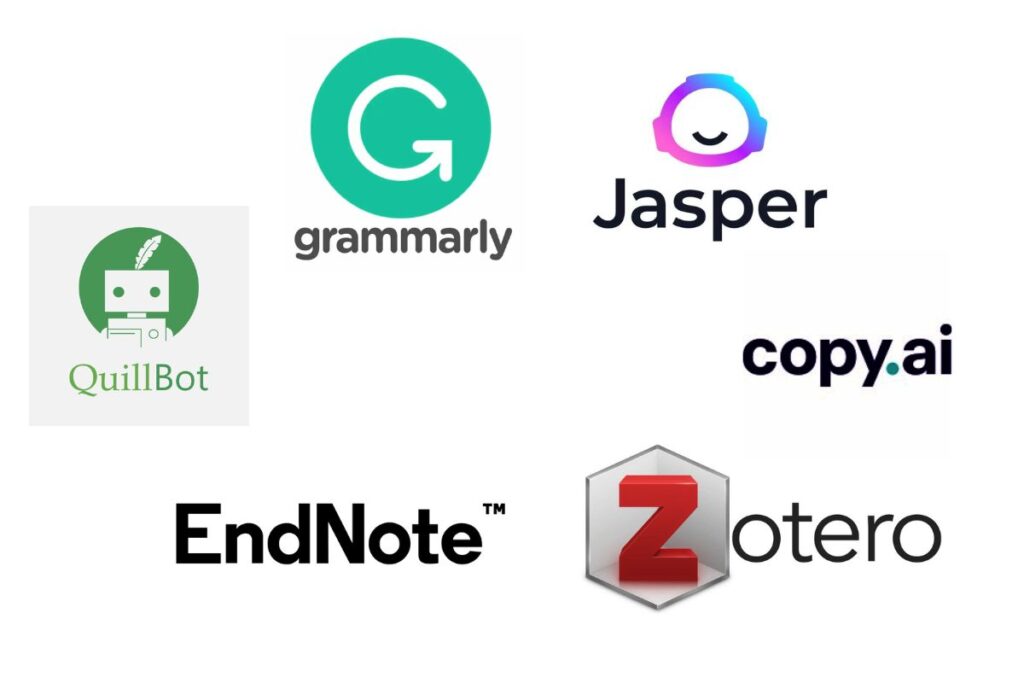Introduction
Research is a time-consuming process that involves gathering data, analyzing information, and compiling findings into a well-structured format. With advancements in artificial intelligence, researchers, students, and professionals can now leverage AI tools to automate data collection, streamline literature reviews, and enhance academic writing.
AI-powered research tools not only improve efficiency but also ensure greater accuracy in information retrieval, citation management, and content structuring. Whether you’re conducting academic, business, or data-driven research, the right AI tools can help you save time and produce higher-quality work.
In this guide, we’ll explore the best AI tools for research in 2025, their benefits, and how they can revolutionize the way you conduct research.
Why Use AI for Research?
Increased Efficiency & Accuracy
AI tools help researchers quickly scan thousands of documents, identify relevant sources, and extract key insights with precision. This eliminates human errors and enhances data reliability.
Faster Literature Review
AI-powered search engines like Elicit and Semantic Scholar simplify literature reviews by summarizing research papers, highlighting key arguments, and even generating citations.
Better Organization & Citation Management
Research often involves dealing with a vast number of sources. AI tools like Zotero and EndNote help manage citations, create bibliographies, and format references automatically.
Enhanced Writing & Editing
AI-driven writing assistants such as Grammarly and QuillBot refine sentence structure, improve readability, and ensure grammatical accuracy, making research papers more polished and professional.
Best AI Tools for Research in 2025
AI Tools for Literature Review & Data Collection

1. Elicit – AI-Powered Academic Search
Elicit is an AI-driven research assistant that revolutionizes the way scholars conduct literature reviews. It uses machine learning to extract key insights from academic papers, helping researchers find relevant studies without manually sifting through thousands of documents. Elicit can summarize findings, highlight methodologies, and suggest related papers based on contextual understanding rather than keyword matching. One of its standout features is its ability to generate structured evidence tables, allowing users to compare research findings easily. Additionally, Elicit can assist in brainstorming research questions, refining hypotheses, and identifying gaps in existing literature, making it an invaluable tool for academics and data-driven professionals.
2. Semantic Scholar – Smart AI-Driven Research Database
Semantic Scholar is a powerful AI-enhanced academic search engine designed to help researchers discover high-quality papers efficiently. Unlike traditional search engines, it uses machine learning and natural language processing to provide smart recommendations, extract key phrases, and highlight influential citations within a study. One of its unique features is its citation intent analysis, which classifies whether a paper supports, contrasts, or merely mentions a referenced study. Additionally, Semantic Scholar offers an AI-powered summarization tool that condenses lengthy research papers into digestible abstracts. Researchers can also track author influence and collaboration networks, making it an essential tool for academic and scientific exploration.
3. Scite.ai – AI-Powered Citation Analysis
Scite.ai is an innovative AI research tool that enhances citation analysis by providing Smart Citations—a unique feature that categorizes citations as supporting, contrasting, or simply mentioning a given study. This functionality helps researchers assess the credibility and impact of a research paper at a glance. Scite.ai also offers a citation mapping tool that visually represents how studies interconnect, aiding in better literature comprehension. Furthermore, it provides an automated reference-checking system, which ensures that citations are relevant and valid. By integrating AI with citation metrics, Scite.ai significantly improves the efficiency of literature reviews and academic verification processes.
AI Tools for Data Analysis & Visualization

4. IBM Watson – AI for Data-Driven Research
IBM Watson is an advanced AI analytics platform that helps researchers process large datasets, uncover hidden patterns, and generate predictive insights. It integrates natural language processing (NLP), machine learning, and data visualization to simplify research analysis. One of its standout features is Watson Discovery, which enables automated data extraction and cognitive search capabilities. IBM Watson is widely used in scientific, healthcare, and business research, offering tools to analyze text, images, and structured data efficiently. Researchers can also benefit from Watson Studio, which provides AI-driven modeling and data analysis for complex research projects.
5. ChatGPT & Claude AI – AI for Summarizing Research
ChatGPT and Claude AI are AI-powered research assistants that excel at summarizing complex research papers, generating structured insights, and refining academic content. ChatGPT, developed by OpenAI, provides detailed explanations, paraphrased content, and interactive research discussions. Claude AI, by Anthropic, is optimized for long-form reasoning and excels at breaking down dense information into digestible summaries. These AI models assist researchers by answering queries, generating literature reviews, and providing contextual analysis in various academic fields. Their ability to refine research questions and interpret findings makes them valuable tools for streamlining research workflows.
6. Excel + AI Plugins – Automate Data Processing
Microsoft Excel, when enhanced with AI-powered plugins, transforms into a powerful data automation tool for researchers. Microsoft AI Builder and Power Automate allow users to create automated workflows, predictive models, and data-driven insights without requiring advanced programming knowledge. Researchers can leverage AI to detect trends, clean large datasets, and automate repetitive calculations. Features like Excel’s AI-powered data analysis tool provide intelligent recommendations based on research patterns. Additionally, integrations with AI platforms like OpenAI’s API allow researchers to perform advanced text analysis, forecasting, and NLP-based categorization, making Excel a versatile AI-assisted research companion.
AI Tools for Academic Writing & Citation Management

7. Zotero & EndNote – AI-Powered Citation Management
Zotero and EndNote are essential AI-driven tools for organizing and managing research citations. Zotero is a free, open-source reference manager that automatically captures citation details from web sources, making it ideal for students and independent researchers. EndNote, a premium solution, offers advanced features like collaborative reference sharing, automated citation suggestions, and journal-specific formatting. Both tools integrate seamlessly with Microsoft Word and Google Docs, streamlining bibliography creation. Zotero is great for ease of use, while EndNote provides robust AI-powered citation organization and extensive database connectivity for professionals and academics.
8. Grammarly & QuillBot – AI for Editing & Proofreading
Grammarly and QuillBot enhance academic writing by improving grammar, clarity, and readability. Grammarly provides AI-powered grammar correction, tone adjustments, and plagiarism detection, ensuring polished and professional writing. QuillBot, on the other hand, specializes in paraphrasing and summarization, helping researchers rephrase complex content while maintaining meaning. QuillBot’s AI-powered thesaurus and sentence restructuring features make it ideal for avoiding redundancy in research papers. Together, these tools refine academic writing, making it clearer, more concise, and publication-ready.
9. Jasper AI & Copy.ai – AI for Drafting Research Papers
Jasper AI and Copy.ai assist researchers in generating coherent and structured research content. Jasper AI excels at creating long-form content, making it suitable for drafting research papers, introductions, and literature reviews. It also offers SEO-optimized content generation and brand voice customization. Copy.ai, known for its quick content generation, is ideal for crafting summaries, abstracts, and research snippets. Both tools streamline the writing process, allowing researchers to focus on analysis rather than drafting from scratch.
How to Integrate AI into Your Research Workflow
Best Practices for Using AI Responsibly
- Always verify AI-generated content to ensure accuracy.
- Cross-check AI-suggested sources with reputable academic databases.
- Use AI tools as an assistant, not a replacement for critical thinking.
Avoiding Plagiarism & Ensuring Content Accuracy
- Utilize plagiarism checkers like Turnitin to maintain originality.
- Cite AI-generated summaries properly to acknowledge sources.
- Edit and refine AI-written content to align with academic standards.
Ethical Considerations in AI-Driven Research
- Ensure compliance with institutional and journal guidelines on AI usage.
- Avoid over-reliance on AI without thorough manual review.
- Maintain transparency when using AI tools in published research.
Final Thoughts & Best AI Tool Recommendations
AI tools have transformed the research process, making it faster, more efficient, and highly accurate. Whether you’re conducting an academic study, market research, or data analysis, AI-powered tools can help you streamline your workflow.
Best AI Tools Based on Research Needs:
- Best for Literature Review: Elicit & Semantic Scholar
- Best for Data Analysis: IBM Watson & Excel AI Plugins
- Best for Academic Writing: Grammarly, QuillBot & Jasper AI
- Best for Citation Management: Zotero & EndNote
By incorporating these AI-driven research tools, you can save time, enhance accuracy, and improve productivity—allowing you to focus on insights rather than manual processes. Start leveraging AI in your research today to work smarter, not harder! 🚀




Pingback: How to Use AI to Write a Resume: Create a Professional CV with Ease - AiSimplified
Pingback: Google Notebook LM: The Future of Learning with AI Tools for Students and Educators - AiSimplified